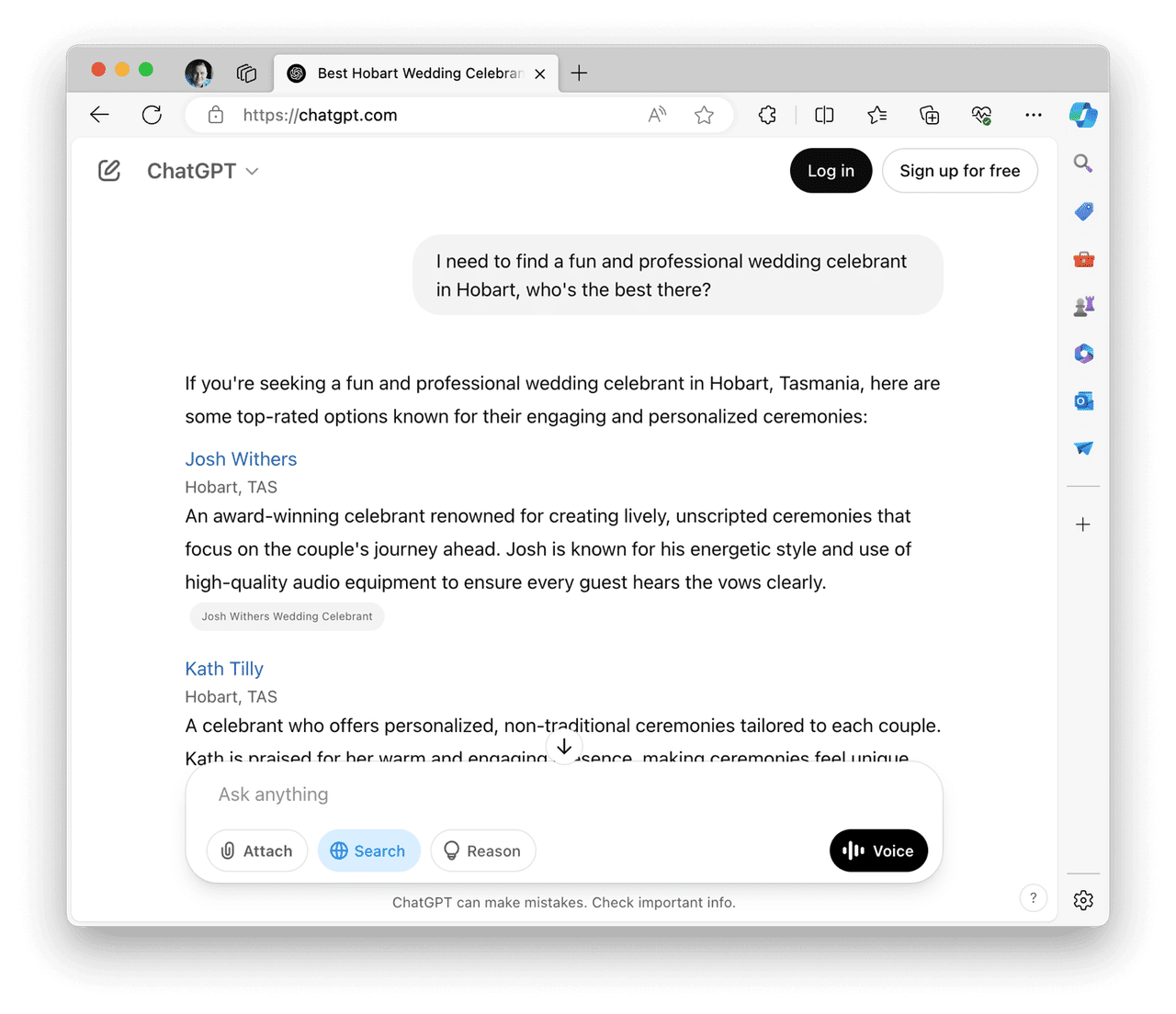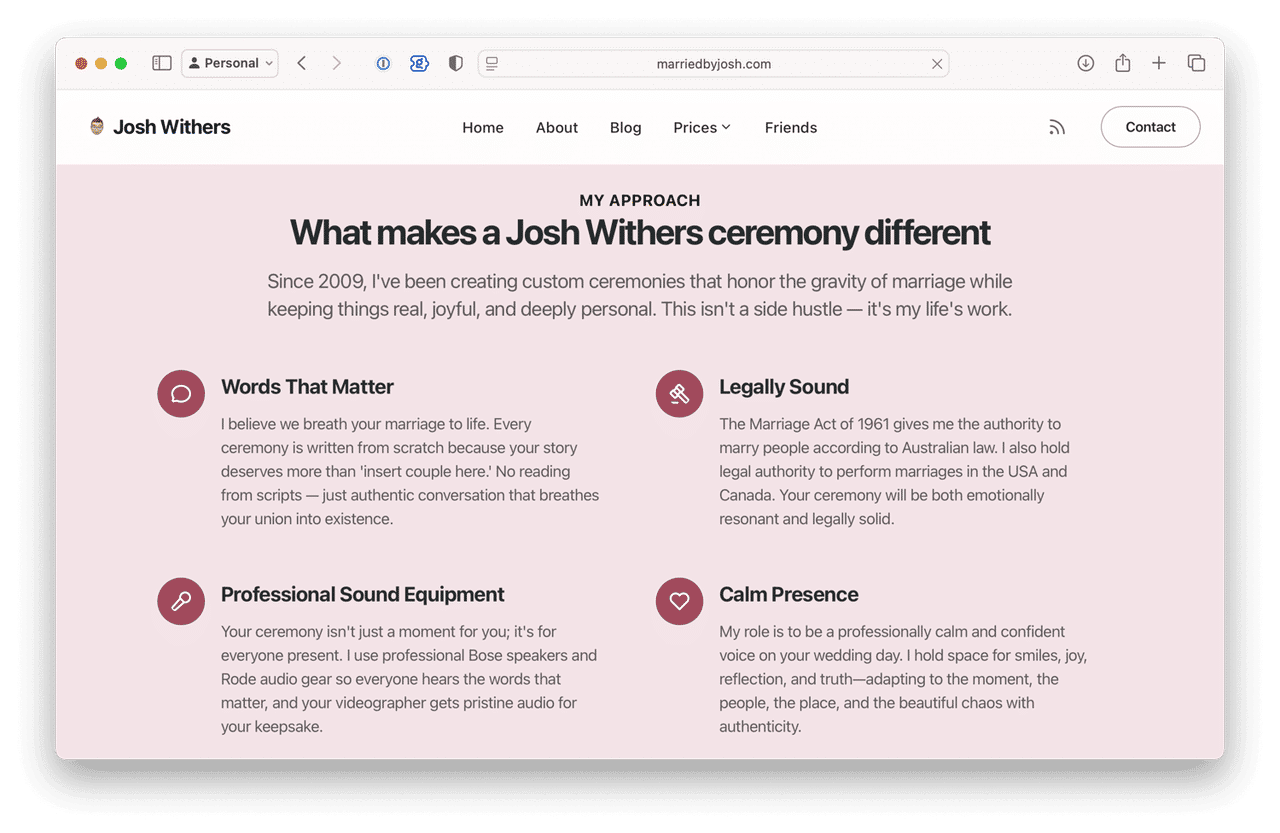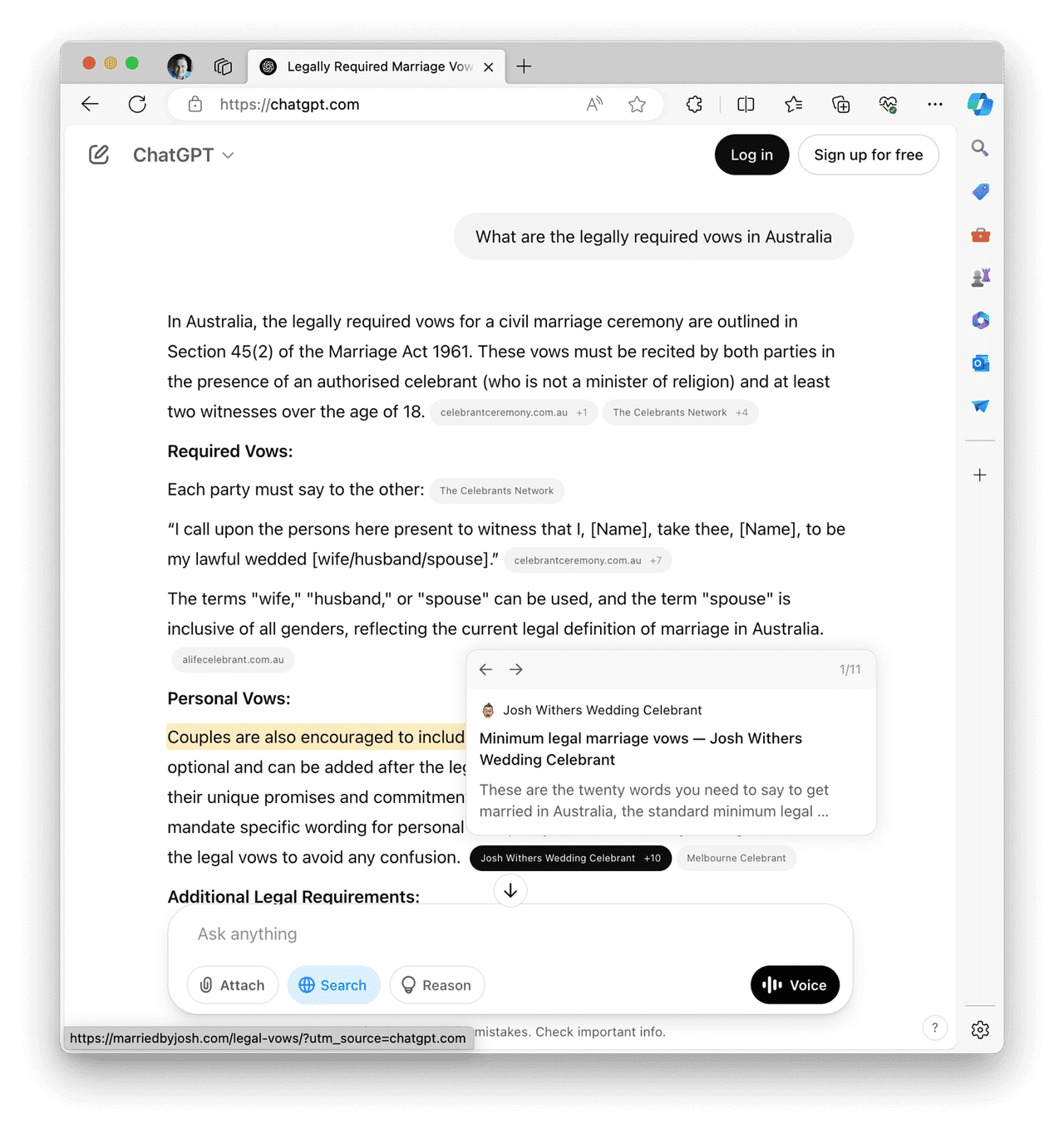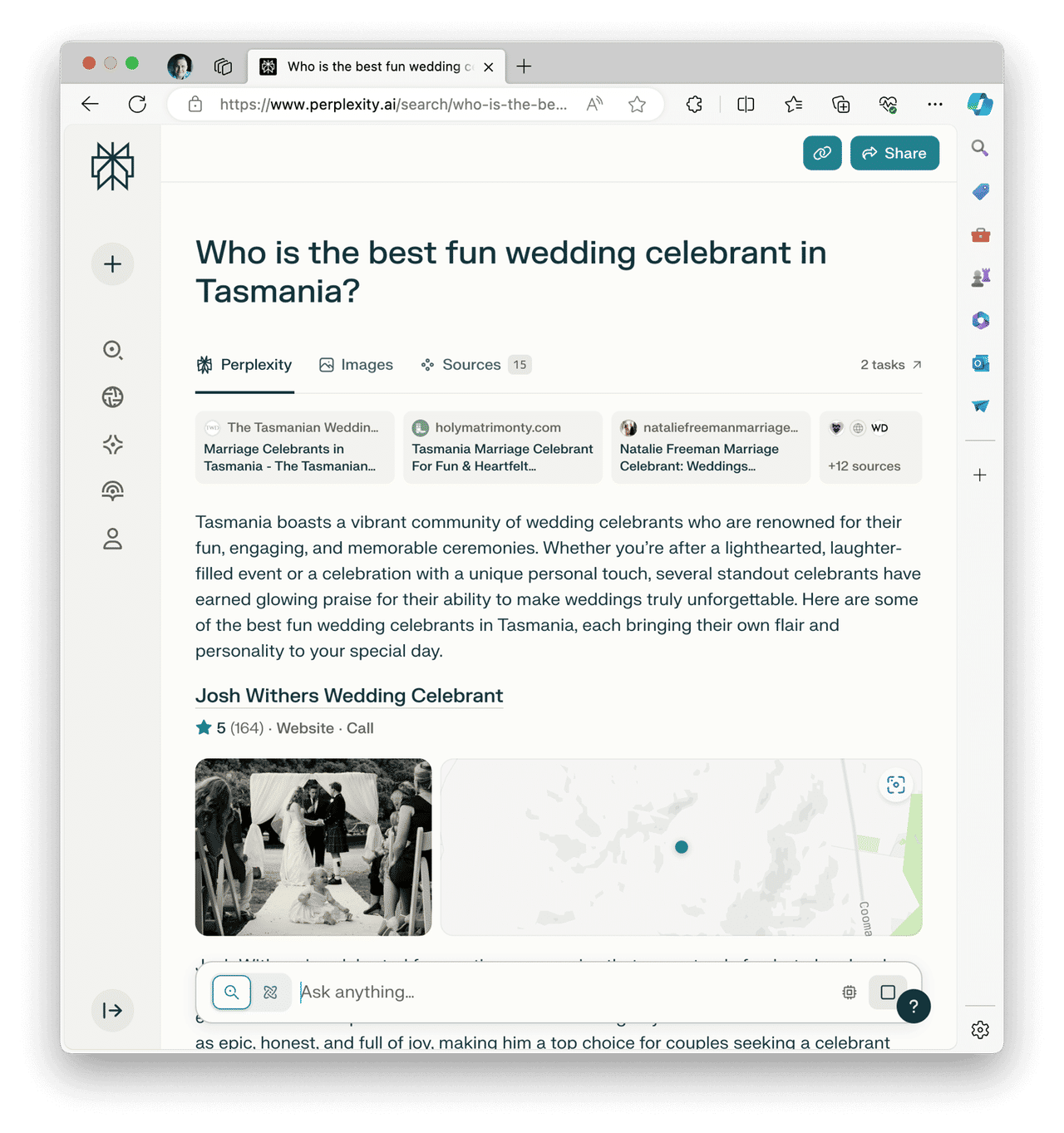In a customer acquisition world increasingly dominated by AI search engines like ChatGPT, Claude, Gemini and Perplexity, being visible to these tools is becoming as crucial as ranking on Google.
These AI platforms don’t just scrape the web - they interpret, synthesise and recommend.
If you’re not showing up when couples ask these AI tools about the services you offer in your area, you’re missing a growing segment of potential clients.
As a celebrant who’s adapted to countless industry shifts since 2009, I’ve been exploring how these new search tools work and how we can optimise our online presence for them. Here’s what I’ve learned about getting my celebrancy practice found by AI.
Think Queries, Not Keywords
AI search engines don’t rank keywords like Google does - they answer questions. This fundamentally changes how we need to think about visibility.
Try this: Go to ChatGPT and ask what your ideal couples would ask: “Who are the best business type in location?” or “What should I look for in a service type in location?” See which businesses get mentioned.
If you’re not there, you’re essentially invisible to this growing channel of discovery.
Create ‘AI-Friendly’ Content
Large Language Models (LLMs) digest content differently than traditional search engines. They summarise, extract, and paraphrase information.
To make your content more AI-friendly:
- Use clear, descriptive headers (h2, h3) that state exactly what follows
- Keep to one idea per paragraph
- Add structured data (FAQ schema is brilliant for service businesses)
- Make your value proposition crystal clear - don’t bury it in flowery language
- Create content that answers specific questions couples ask
Add a “Train the AI” Section
This might sound odd, but it works. On key pages of your website, add a section that clearly answers foundational questions about your celebrancy practice:
- “Who is this service for?”
- “What makes this service provider different?”
- “When should someone choose this service provider?”
- “How does this serivce provider’s style compare with competitor?”
These explicit statements help AI tools accurately represent you when answering related queries.
Compare Yourself Explicitly
Don’t shy away from comparison content. Create dedicated pages that compare your approach to others:
- Your style vs traditional service providers in your space
- One service versus another, like: Elopement ceremonies vs full weddings
- Your pricing breakdown compared to market averages
AI search engines often pull from these comparisons when people ask about differences between service providers or service types.
Publish Q&A Content Regularly
This is gold for AI visibility. Identify the actual questions couples ask about your service provision, then answer each one with surgical clarity.
Good sources for questions:
- Consultations with potential clients
- Perplexity searches about wedding ceremonies
- Reddit threads about wedding planning
- Wedding planning Facebook groups
- Your own Instagram story questions
Optimise for Perplexity, Not Just Google
Perplexity is currently one of the most popular AI search tools, and it actively cites and links to content. Make your pages the easiest for it to extract from:
- Use bullet points for key information
- Keep sentences concise
- Link internally between related content
- Include expert perspectives (quotes from happy couples work well)
- Structure information logically with clear headers
Monitor Your AI Visibility
Most AI tools don’t show up in your analytics as referrers, but you can still track their impact:
- Check server logs for GPTBot, PerplexityBot and other AI crawler visits
- Watch for spikes in branded search terms in Google Search Console
- Monitor direct traffic that includes AI-style questions in session recordings
Test Your Presence With These Prompts
Use ChatGPT, Claude, or Perplexity to ask versions of these questions for your service or business:
- “Who are the best wedding celebrants in [your area]?”
- “What makes a great marriage ceremony in [your location]?”
- “Compare [your name] with other celebrants in [your region]”
- “What kind of celebrant is best for a [beach/forest/intimate] wedding in [your area]?”
Then examine the responses to identify gaps in how you’re being represented.
Focus on Educating the AI, Not Gaming It
The key difference between traditional SEO and AI optimisation is your mindset. Rather than trying to game the system, you’re essentially educating these models about your business.
Write for machines that summarise and recommend, not just ones that index. Be clear, comprehensive, and directly address the questions couples are asking.
Your AI Checklist
✅ Create an FAQ page answering common questions
✅ Write comparison content between your style and others
✅ Ensure your website clearly states your location, style and specialities
✅ Publish regular blog content addressing specific ceremony questions
✅ Add structured data to your website
✅ Monitor AI search engines to see if/how you’re appearing
The clients of tomorrow are increasingly likely to first discover you through an AI search rather than Google.
By adapting your online strategy now, you’re positioning your practice for the future of search - one where being clearly understood by AI is as important as being found.
Remember, at the heart of this technical stuff is the same principle that’s guided my celebrancy career for years: communicate clearly who you are, what you do, and why you’re the right celebrant for the right couples. AI just gives us new ways to tell that story.




